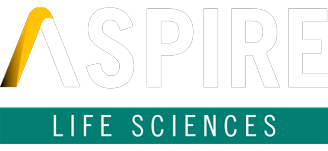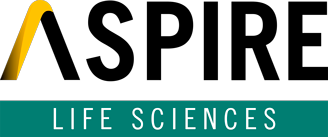The SaMD gold rush and talent pressure

Europe’s SaMD (Software as a Medical Device) scene is booming. Startups are developing apps that flag early signs of disease, AI tools that optimise hospital workflows, and platforms that monitor patient health in real-time. Investors are pouring in money, founders are dreaming big, and everyone is chasing the next “digital health unicorn.”
But there’s a problem: while ideas are plentiful, the right people to build them are not. QA specialists, regulatory experts, AI engineers — they’re in demand, rare, and being stretched to the limit. Startups expect rapid delivery, but the talent pool can’t keep up, which quickly leads to burnout. And burnout isn’t just bad for morale; it slows product development, delays approvals, and, ironically, threatens the very growth VCs are demanding.
The pressure cooker of growth and regulation
VC funding brings opportunity — but also intense pressure. Founders feel the need to hit milestones quickly, impress investors, and launch products at speed. That often means long hours, aggressive timelines, and promises that are… optimistic at best.
Add regulatory complexity into the mix, and the pressure intensifies. Europe’s MDR rules are intricate, while SaMD products require careful documentation, testing, and clinical validation before they can reach patients. It’s not just about coding an AI; it’s about knowing the regulatory pathways and navigating them flawlessly.
Top talent quickly realises that some startups are treating regulatory compliance as a “necessary evil” rather than a core part of development. Overstretched employees can’t absorb all the complexity, mistakes happen, and projects stall. It’s a vicious cycle: pressure leads to mistakes, mistakes slow progress, and slow progress fuels more pressure.
Candidates can see through hype
From the perspective of engineers, QA specialists, and regulatory leads, the picture is clear. They are highly aware of overpromises and unrealistic roadmaps. While the work can be exciting — designing the future of digital healthcare — talent won’t stick around if the culture is unsustainable.
It’s like joining a shiny new gym. The branding looks great, the equipment is top-notch, but if the coach expects you to run a marathon on day one without guidance, most people walk out. European SaMD talent wants innovation, yes, but also clarity, support, and a realistic environment.
How startups can fix it: structure, support, and guidance
The good news? This is solvable. Startups can protect their teams and retain talent by combining realistic expectations with practical support structures. Clear roadmaps, sustainable workloads, mentorship, and the use of contractors or consultants to guide employees through regulatory pathways can make a huge difference. Contractors aren’t just temporary help; they’re experienced guides who know how to navigate FDA or MDR processes, easing the burden on full-time staff.
By providing support, founders reduce burnout, accelerate product development, and maintain morale. They also signal to candidates that they value their people, not just their ideas — a small cultural shift with massive effects.
Recruitment: Finding the right talent and support
Savvy recruitment plays a key role here. The right recruiter doesn’t just submit CVs; they understand the complexity of SaMD development, know which candidates can thrive under regulatory and technical pressure, and can identify where external expertise might be required. Startups that integrate recruitment strategy with workforce planning can fill roles without overloading their teams and prevent the talent pipeline from collapsing.
The takeaway
European SaMD startups are flush with capital, ambition, and innovation — but they’re at risk of burning through talent faster than their VC cash. The so-called “talent shortage” isn’t always a shortage at all; it’s often a result of unsustainable expectations, overworked employees, and poor support structures.
By combining realistic planning, structured guidance, and external consultants to help navigate regulatory pathways, startups can maintain pace without losing the people who make their products possible. After all, even in a gold rush, the miners who pace themselves find the real nuggets.
About Taylor Lyons
Taylor is a Recruitment Consultant at Aspire Life Sciences. He specialises in bridging the gap between talented professionals and leading companies within the MedTech sector across Europe and the Middle East. With a keen focus on the nuances of Medical Device Regulation (MDR), he brings a strategic approach to recruitment. He ensures that both candidates and organisations are aligned across compliance, skills, and cultural fit.
If you’re looking for a new career opportunity or seeking the right addition to your team, contact taylor.lyons@aspirerecruitmentgroup.com.





Leave a Reply